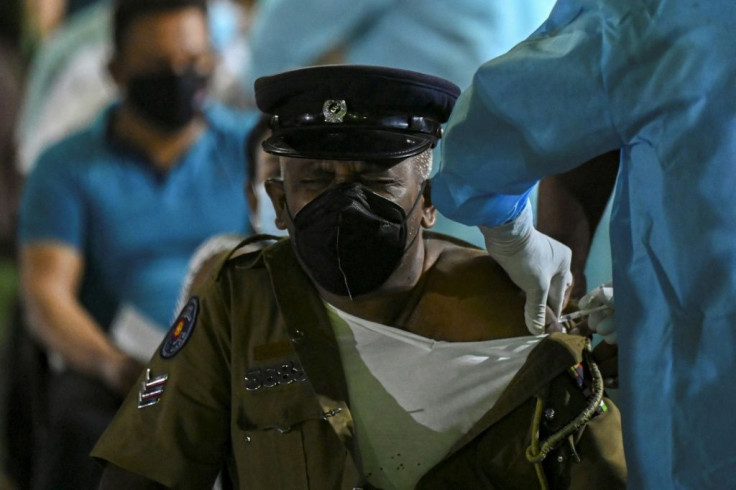Biden Administration Floats Billions Of Dollars To Drugmakers To Boost Vaccine Supplies
The Biden administration has set out to find new ways to ramp up vaccine production against COVID-19 and future pandemics, and that plan could mean billions of dollars for drugmakers.
On Wednesday, two Biden administration officials explained to the New York Times that the idea of forming a new public-private partnership with vaccine manufacturers is maturing. Dr. David Kessler, who oversees vaccine distribution for President Joe Biden’s, said the plan is to expand capacity and be prepared for the next possible pandemic.
“The goal, in the case of a future pandemic, a future virus, is to have vaccine capability within six to nine months of identification of that pandemic pathogen, and to have enough vaccines for all Americans," said Kessler.
Kessler did not offer a specific price tag or detail the contours of this partnership. However, he said that the amount of money that would be invested in the partnership would be “several billions” and that the funds were already set aside from the $1.9 trillion American Rescue Plan that passed in March.
For the Biden administration, supercharging the production of current COVID-19 vaccines can help it out of a mix of quandaries and pledges it has made at home and abroad.

Approval for the president’s handling of the pandemic was initially strong at 69% when he arrived in office, but it has since fallen to 48.9% approval with 45.5% disapproving. At the same time, Biden’s overall approval ratings have wobbled as concerns mount over inflation and internal squabbling within his Democratic Party, putting his entire domestic agenda at risk of stalling.
Since September, the Biden administration has spearheaded a booster shot campaign across the country. However, the program was undercut early on by concerns about the supply of vaccines with only shots from Pfizer/BioNTech available at the time for boosters. Since then, emergency use approval has been granted to Moderna and Johnson & Johnson for booster shots.
The Biden administration also has work ahead of it for getting more children vaccinated against COVID-19 now that approval has been granted for young children and teenagers alike. According to the American Academy of Pediatrics (AAP), 14.7 million U.S. children and adolescents aged 12- 17 have received at least one dose of COVID-19 vaccine. Vaccines for children aged 5-11 was also recently approved and has surpassed the 1 million mark.
Expanded production of COVID-19 vaccines will also be useful to help the administration match its international pledges to expand the supply available to poorer nations. The World Health Organization (WHO) has cautioned that making boosters available will exacerbate this situation by taking more doses away from countries with much lower vaccination rates.
Over the summer, the U.S. announced that it had shipped 25 million vaccine doses to African countries and Biden himself pledged an additional 17 million on Oct. 15. However, it has been reported that his administration’s efforts to help Africa’s vaccination efforts have lagged and has been slow to spend congressionally allocated funds for this campaign.
© Copyright IBTimes 2025. All rights reserved.





















